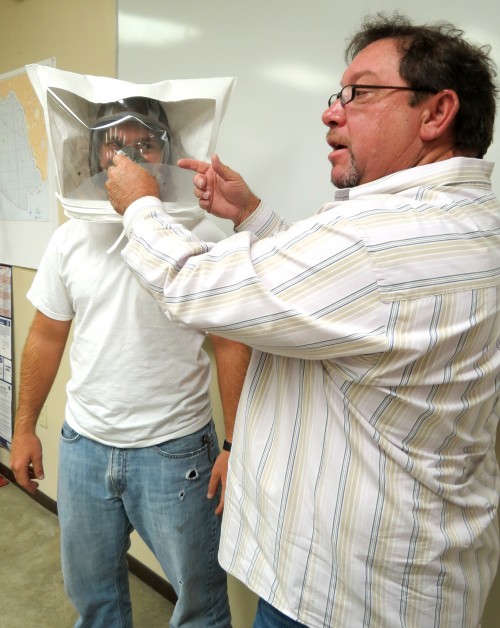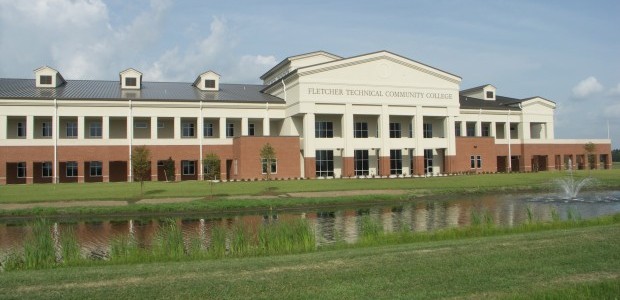
NSU sees grad class grow 3rd consecutive year
November 13, 2012
TEDA looks to grow Terrebonne
November 13, 2012Educational institutions commonly claim they are committed to the communities where they are located. Not many are known to have established the connection level demonstrated by Fletcher Technical Community College.
With the opening of a new 99,000-square-foot campus complex near Houma on La. Highway 311 in August, some might think that completion of the $21.3 million facility is Fletcher’s primary progress point for 2012.
According to Chancellor Travis Lavigne, the towering structure to the north of U.S. Highway 90 only symbolizes part of Fletcher’s advancements, which include activity at four additional campus locations in Terrebonne Parish.
“It has been a great year,” the chancellor said. “We were able to complete the [new] facility to a point that it is completely operational.”
Lavigne said the efforts behind Fletcher’s success includes educators, staff members, students, area businesses and the regional legislative delegation.
Lavigne said it is difficult to measure Fletcher’s influence in the region. “I’m not sure we have a measurement per se, except we try to meet the needs of the skilled workforce,” he said. “We train a maximum number of people in our technical programs. Many are at the St. Charles Street campus, the marine transportation program at the [Louisiana Marine and Petroleum Institute facility on Dickson Road], plus the drafting, design and integrated design technologies at the new campus.”
The chancellor said training many people for industrial occupations is only possible because of job opportunities in the region. “We’re doing as best we can to train people as quickly as we can,” he said.
The exceptions to that approach are in two popular fields of study – integrated production technologies and nursing – where a degree is an absolute requirement.
Students in electrical, welding and machinists programs, including those seeking certification, are mainly present to hone skills or learn new procedures. Students in industrial segments tend to go to work. They might not be in programs that require specific degrees, but Lavigne contends they are essential to regional industry. “That’s a good problem to have,” he said.
Fletcher has succeeded in customizing training and classes for specific companies and industrial needs. “We are working on one right now in which there are additional requirements for coursework to maintain licenses,” Lavigne said. “So, yes we are flexible. We realize our customers are two-fold. They are the students we serve and the industry that ultimately serves the students with jobs.”
“For the vast majority of our programs, especially the ones that are technical or professional in education, we have advisory committees representing industry that interact with our faculty, department heads and administration,” Fletcher Institutional Research and Effectiveness Director Stanton McNeely said. “They represent [multiple] areas, whether it is [in an Internet provider’s guide] area or nursing or machine tool, we have been active in many forms.”
“I’m sure that [closeness between business and educational institutions] exists other places in the country,” Lavigne said. “We have had a culture of doing that for a number of years. We have been fortunate to have support from BP, Shell, Chevron, Conoco-Philips, Apache and others for a number of years.”
This year, BP made a $4 million major contribution to Fletcher, which was matched by $4 million in state funds, for construction of an integrated production technology building. Ground breaking on that project is expected in 2013.
Fletcher is engaged in expanding its LaMPI facility during 2013 with a $5 million project that will include installation of two new maritime training tools. One will be an inland towing simulator and the other a dynamic positioning simulator.
Lavigne has confirmed that increased offerings to meet industrial demands serves to enhance educational opportunities and promotes growth of the institution. Fletcher’s full-time enrollment from the fall semester 2011 to the fall semester 2012 increased 4 percent from 2,486 to 2,502.
Terrebonne Parish President Michel Claudet has credited Fletcher’s educational efforts as being at the heart of industrial development. “[Fletcher] has provided a competent, qualified and educated workforce and has been fuel for the economy,” he said.
“We are going to continue to be focused on the delivery of services,” Lavigne responded.
Fletcher Technical Community College Chancellor Travis Lavigne said progress for 2012 and 2013 reaches beyond the opening of a new $21.3 million facility. The technical college has joined efforts with industry to enhance curriculum and physical resources for educating students to enter the regional workforce.









